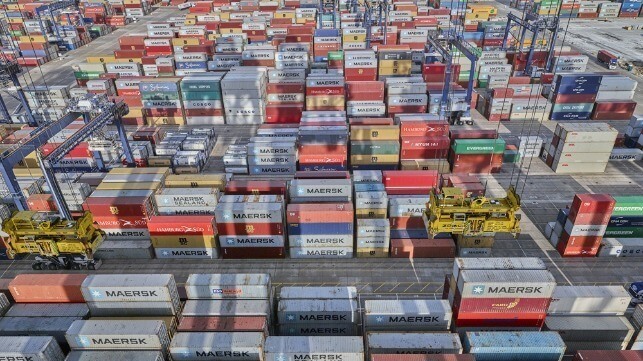DCSA and Shipping Enlist SWIFT, ICC, and Others to Speed eBL Efforts

Continuing the effort to drive the adoption of digitalization and eBLs, a new cross-industry alliance is forming uniting leaders in banking and trade with the maritime industry. Led by Digital Container Shipping Association, the new Future International Trade (FIT) Alliance includes the international financial transaction network SWIFT, the International Chamber of Commerce, the freight forwarder association FIATA, BIMCO, and the nine member carriers of the DCSA in a wide-reaching partnership committed to collaborating to standardize the digitalization of international trade.
“From the beginning, DCSA has understood the importance of cross-industry collaboration to achieve the elusive goal of universal eBL,” said Thomas Bagge, CEO of the Digital Container Shipping Association. “The FIT Alliance is one exciting result of our ongoing effort to drive that collaboration. Container ships carry 90 percent of the world’s goods. As such, an incredibly diverse set of stakeholders touches the B/L transaction—from government regulators to insurers, to shippers from every industry. To achieve widespread use of eBL, they must all be on board with adopting digital B/L standards.”
Through this initiative, the FIT Alliance will work together to generate awareness about the importance of common and interoperable data standards and common legislative conditions across international jurisdictions and platforms. The aim is to facilitate acceptance and adoption of an eBL by regulators, banks, and insurers and to unify communication between these organizations and customers, physical and contractual carriers, and all other stakeholders involved in an international trade transaction.
Established in 2019 by several of the largest container shipping companies, the DCSA is a nonprofit, independent organization. Its mission is to be the de-facto standards body for the industry, setting the technological foundation for interoperable IT solutions.
“The agreement between DCSA and these diverse industry associations is an exciting milestone in our journey towards standardizing all container shipping documentation through our eDocumentation initiative,” continued Bagge. “We applaud the foresight and leadership of these organizations for joining us in the effort to bring greater transparency, efficiency, reliability, and sustainability to the container shipping industry.”
By collaborating with SWIFT, the group is involving one of the cornerstones of the financial industry. SWIFT connects 11,500 institutions in more than 200 countries and facilitates over $2 trillion in global trade every year. Similarly, FIATA has been one of the leaders in developing the electronic Bill of Lading (eBL) standard, with its transport document endorsed by UNCTAD and ICC.
“The digitalization of documentation for container shipments will add value for international suppliers who rely on shipping across sectors,” said David Loosley, Secretary General and CEO of BIMCO. “Aligning these standards with the electronic bill of lading standard for the dry and liquid bulk sectors, which we are developing with assistance from DCSA, will help accelerate the digitalization of trade globally.”
Long sought after by the industry, the move toward digitalization and adoption of the eBL was accelerated by the pandemic. The challenges of managing the movement of goods helped to accelerate the adoption of digitalization and the new alliance seeks to expand on this progress building universal adoption to expand the benefits of the technology across the shipping industry and its related partners.
